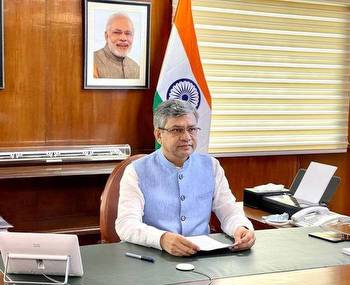New Online Gaming Regulatory Regime Bans Wagering Apps- India
The Ministry of Electronics and Information Technology (“Ministry”), on April 6, 2023, notified the Information Technology (Intermediary Guidelines and Digital Media Ethics Code) Amendment Rules, 2023 (“Rules”)[1] in a bid to regulate the online gaming industry. This development comes in the backdrop of the Finance Act, 2023 levying a flat 30% tax[2] on winnings accrued from online gaming platforms.
New Online Gaming- Key Highlights
The Rules have been formulated as an extension to the already existing Information Technology (Intermediary Guidelines and Digital Media Ethics Code) Rules, 2021 by introducing additions, pertaining specifically to online gaming, in the existing rules. In essence, the thrust is towards introducing self-regulation and due diligence in the market. Several consequential and noteworthy additions are as follows:
Online Game Intermediary
As per the Rules an online game is any game accessible over the internet by using a computer resource or an intermediary. The intermediary here stands for online gaming intermediary, defined as any intermediary which allows user to access one or more online games.
Online Real Money Game and Permissible Online Real Money Game
According to the Rules if a game involves making a deposit of cash or kind in expectation of earning winnings on such deposit, such a game is an online real money game. Further, if such online real money game is verified by an online gaming self-regulatory body to be in compliance with the Rules, it shall be characterized as a permissible online real money game.
Self-Regulatory Body
The Rules have introduced the concept of online gaming self-regulatory body which will act as a body designate to verify if an online real money game is permissible online real money game or not. The Rules provide for multiplicity of such bodies, preferably catering to different genres of online games.
Power to appoint an online gaming self-regulatory body has been accredited to the Ministry subject to a detailed criteria, for instance, such body should be a Section 8 company under the Companies Act, 2013 with its membership being representative of the online gaming industry among other eligibility criteria as detailed in the Rules.
Wagering Games
In light of the scourge[3] of online betting apps, disguised as games, the Rules have imposed a prohibition on such real money games which allow users to wager on outcomes. The Rules provide for online gaming self-regulatory to not provide sanction to any online real money game that involves an element of wagering.
In addition to the above, the Rules have also laid stress upon the need to ensure safeguards by online gaming self-regulatory bodies to prevent gaming addiction, self-harm, and psychological harm, an avenue for parental control, and an online game classification/rating system based on the type and content of the game.
Effect on the Market
According to the India Brand Equity Foundation[4], the Indian online gaming market is currently valued at USD 2.6 billion and is projected to reach USD 8.6 billion by the year 2027. Such staggering growth is fueled by a burgeoning population of youth in India with access to affordable internet data and an unregulated online gaming industry.
In light of this, the Rules will act as a way to bridge the gap between unrestricted markets and a holistic regulatory environment to prevent malfeasance. Furthermore, the Rules have provided much-needed regulatory clarity vis-à-vis which game can be classified as an online game, and most importantly, which online real money game is permissible and which is not. Such distinction between what is permissible in the realm of online gaming will further give a fillip to ethical game development as well as separate legitimate endeavors in the field from gambling/betting apps disguised as online games.
Conclusion
The Rules are an appropriate response to a long-standing demand by various stakeholders to regulate the growing gaming industry. Introduction to an industry-centric self-regulation regime with Ministry acting as a facilitator will provide ample leg room for the industry to flourish while, hopefully, preventing malfeasance, cheating, invasion of privacy, addiction, piracy, abuse, and bullying from unfettered proliferation.
















![[The Viewpoint] Online Gaming to follow New IT Rules](/img/di/the-viewpoint-online-gaming-to-follow-new-it-rules-1.jpg)

















